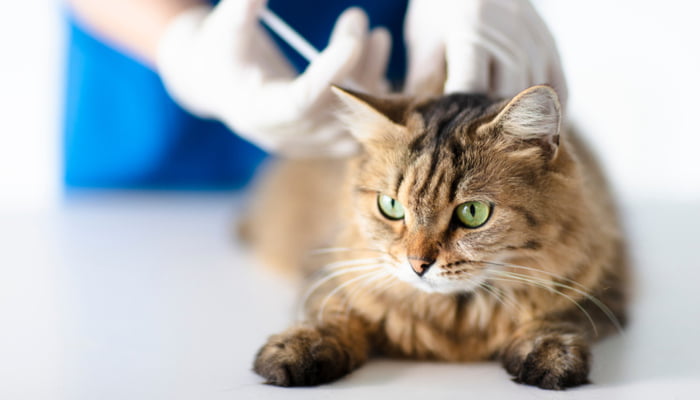Allergies are one of the most common ailments in our society. The reasons for allergies can range from the environment to genetics, but they all have their symptoms and treatments. One of the more popular types of allergy is an animal allergy, which mainly affects cats. Learn about some potential causes that could be causing your cat’s allergies and how you can treat them with this blog post.
Why are cats getting allergies?
Cats can get allergies for various reasons. Some common causes of cat allergies include a poor diet, immune system problems, and even dust mites. To help better inform you on how to treat your cat’s allergy, let’s go over some of the most common causes.
Here is a list of possible reasons your cat could have an allergic reaction:
Poor Diet: If your cat has a diet low in certain amino acids, it will begin to show signs of an allergic reaction. I find this to be true with my Bengal cat, Sebastian. While he is on a diet of mainly meat-based products, his sister, Suki eats mainly grains. I have noticed that Suki will lick her paws often and twitch her tail when she has an itch- which are both signs of allergies.Low Taurine Levels: Finally, cats with low taurine levels could also become allergic to the food they eat. I recommend checking out this website for more information on taurine deficiency in cats. After reading some of the information about taurine deficiency, it seems extremely important to keep your cat’s taurine levels up if they are eating food without taurine added to it.
Immune System Problems: If your cat has an immune system disorder, this could also cause allergens. So far I have not heard of any specific immune disorders that can lead to allergies in cats, but it is still possible.
Dust Mites: Lastly, another potential reason for allergies in cats would be dust mites. As mentioned before, some people believe their houseplants are the culprit behind their allergies- when it might be something like dust mites. There is no way to get rid of dust mites, so the best thing to do is buy allergen-proof covers for your bedding and pillows if you suspect they might be causing these reactions.
Available Treatments for Cats’ Allergies
Allergy shots

You may have heard of allergy shots before. These are the serum injections that a doctor gives you to help reduce your symptoms from allergies. The same principle applies to cats. Your vet can recommend a series of injections that will reduce your cat’s itchy skin within a few treatments. However, please take note that not all cats react well to these kinds of shots and they can cause various side effects such as flu-like symptoms (i.e., fever, fatigue, etc.).
Bathing your cat often or using hypoallergenic shampoos
Bathing your kitty frequently may help with their overall health because it gets rid of any allergens and other irritants they’re exposed to but does not deplete their natural oils. You can also use hypoallergenic shampoos to help reduce the number of allergens on your cat, but it can’t remove them entirely like regular shampoo.
Steroid Shots
Steroids such as prednisone and dexamethasone are often used by vets to help decrease inflammation of your kitty’s skin which in turn reduces how much they itch and scratch themselves. Some possible side effects that may occur from using steroids include vomiting, diarrhea, poor appetite, increased thirst, and urination (peeing a lot). If you think you’d like to try steroids for your kitty we recommend checking with your vet before administering any kind of steroid treatment.
Antihistamines
You can also try giving your cat antihistamine supplements that help with their allergies. Like prednisone and dexamethasone, this supplement often helps relieve itching and scratching by reducing inflammation in your kitty’s body. Common side effects include vomiting, diarrhea, dizziness, tiredness (fatigue), dry mouth, etc. If you think your feline friend would benefit from using antihistamines please check with your vet before administering them or any other medication for that matter.
Conclusion
Allergies can be a pain and not just for humans but cats as well. We hope this list of possible treatments for your cat’s allergies will help you better treat them should they ever start showing signs of having allergies. Please remember that all cats are different and may react differently. If you think your cat would benefit from any kind of treatment we mentioned above make sure to consult with a vet first before trying anything on your kitty.





